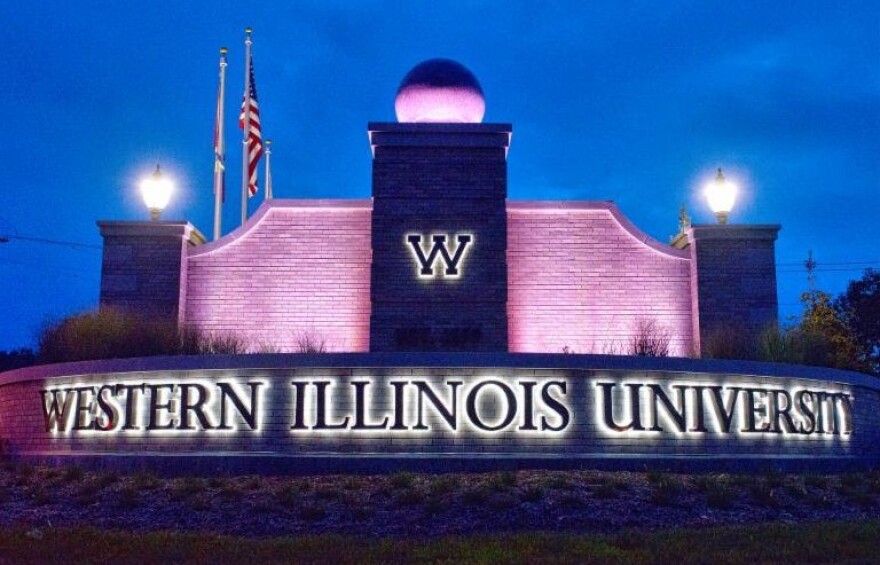Dr. Guiyou Huang spoke with Tri States Public Radio Tuesday morning, less than 24 hours after Western Illinois University's Board of Trustees voted unanimously to hire Huang as the 12th president in WIU history.
We discussed his vision for Western, the factors that made the WIU job attractive to him, enrollment, systemic racism, and more. You can listen to the full interview by clicking on the audio link.
Listen to TSPR's full interview with incoming WIU President Guiyou Huang
Here are a few brief excerpts from the conversation:
TSPR: What is your vision for how large Western should be in terms of enrollment?
Huang: Achieving enrollment goals depends upon many factors. Human resources, financial resources, program availability, and even more importantly the demographic shift we have seen throughout many parts of the country. Fewer students are graduating from high school; therefore, fewer college goers currently and in the future. Which means we need to more aggressively recruit students, not only in Illinois but also in neighboring states and even internationally.
TSPR: With smaller high school graduating classes, what do you do to convince those students that Western is a place they should come to?
Huang: Western does have a very good breadth of programs. Many of them are traditional liberal arts programs. And now the university has a number of professional programs both on the main campus in Macomb and at the Quad Cities campus. I think those programs can be strengthened. So that’s one thing I want to look at in terms of growing enrollment.
Another very important issue I would like to look at is student retention. Western is doing a fine job retaining students but we can even do better by focusing upon removing the barriers to student retention.
Of course the students themselves have a responsibility to themselves to come to Western, stay here, work hard, and graduate in four years.
TSPR: One of the challenges facing the campus is systemic racism, on campus and in the community. How do you go about addressing that?

Huang: That is a very important topic. In many years of professional life I have taken a very clear strong stance on issues like racism. It’s a zero tolerance policy (that) I hold dear.
Racism is real. I was a victim of racism when I was a new student in another state. I had a carload of people driving by me on the street and (they) threw an egg at me – it landed on my shoulder -- shouting things.
I have experienced racism firsthand. It should not be tolerated. This issue will be a major priority on my list when I land on campus in a couple months.
TSPR: Do you feel you’ve been subjected to racism, maybe even in more subtle forms, in the time since the encounter you mentioned?
Huang: Oh, yeah. I’m Asian. There are all kinds of stereotypes of different groups, including Asians. You named the thing the right way. Overt racism is easier to deal with because it’s overt. Subtle racism is harder to discern, and that’s where the battle should be fought. People should not look at individuals from other racial or ethnic groups and judge them because of the color of their skin, the texture of their hair, or the way they dress, the way they speak their language, the way they practice their religion.
Tolerance is a low bar. We should be tolerant. But I respect acceptance by people who are not members of my own ethnic group.
Additional Info
Huang has served as president of Edinboro University of Pennsylvania since July, 2019. The state is consolidating that school with two others, which is why Huang was available for hire.
Huang is scheduled to begin work at WIU in January. BoT Chairperson Polly Radosh said the two sides are finalizing contract details such as pay.
“We have had some preliminary discussions,” said Radosh. “He knows what our range of pay is. He’s done his homework about the state of Illinois so he knows what presidents are paid in our state. We have a range but we just don’t have a number yet.”
Huang and the BoT must also decide the length of his contract.
This story was produced by Tri States Public Radio. TSPR relies on financial support from our readers and listeners in order to provide coverage of the issues that matter to west central Illinois, southeast Iowa, and northeast Missouri. As someone who values the content created by TSPR's news department please consider making a financial contribution.
Copyright 2020 Tri States Public Radio


